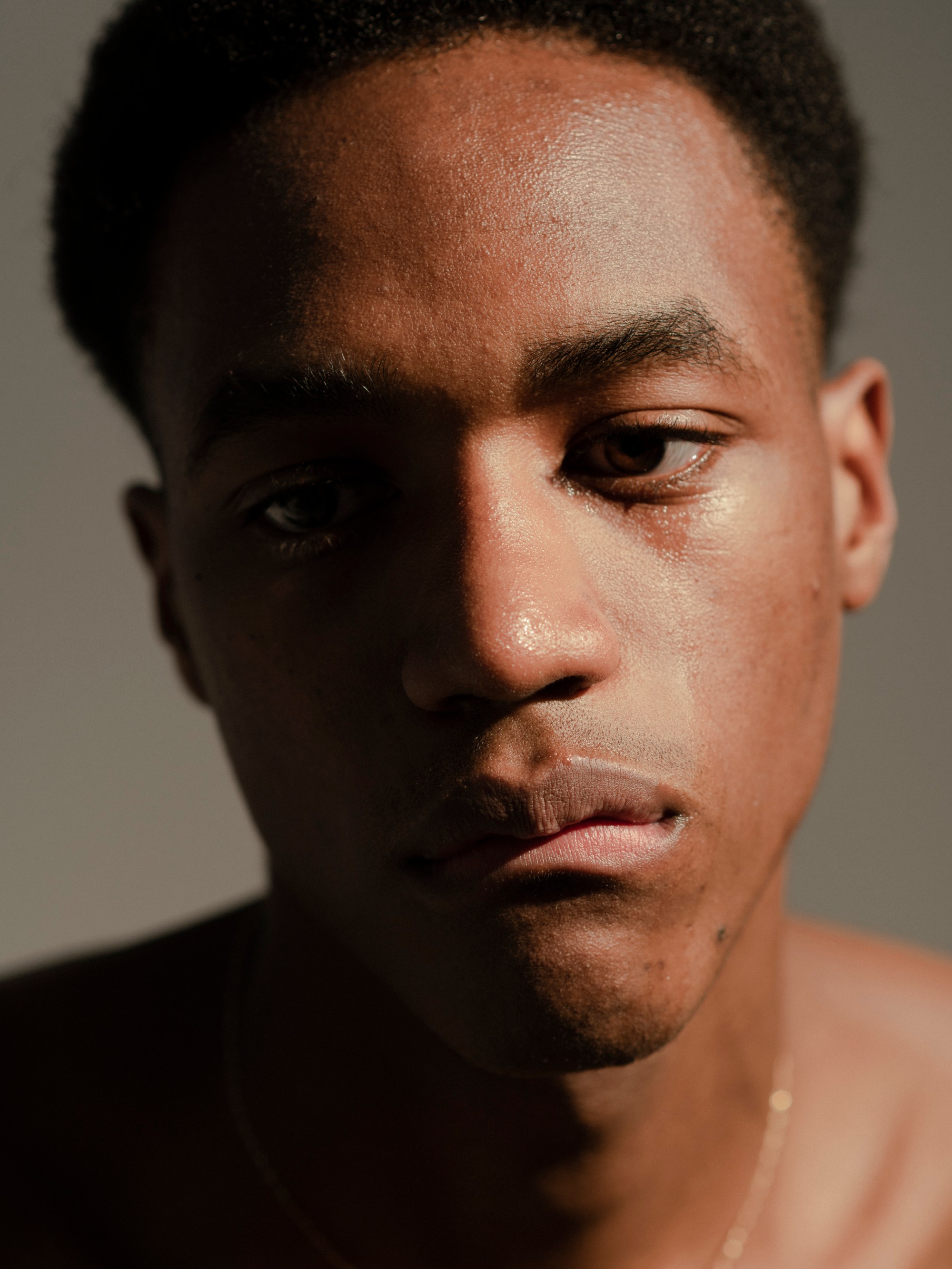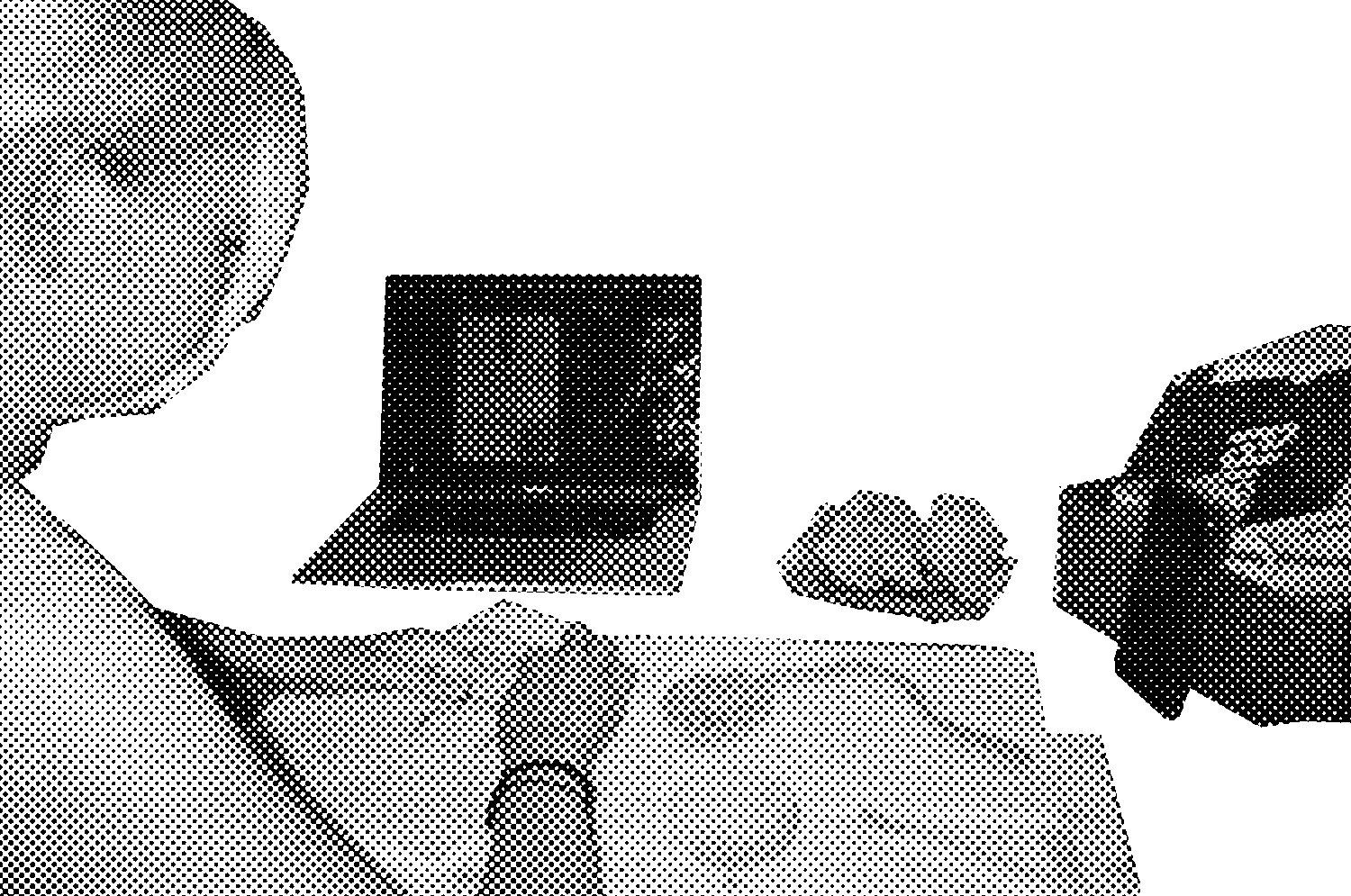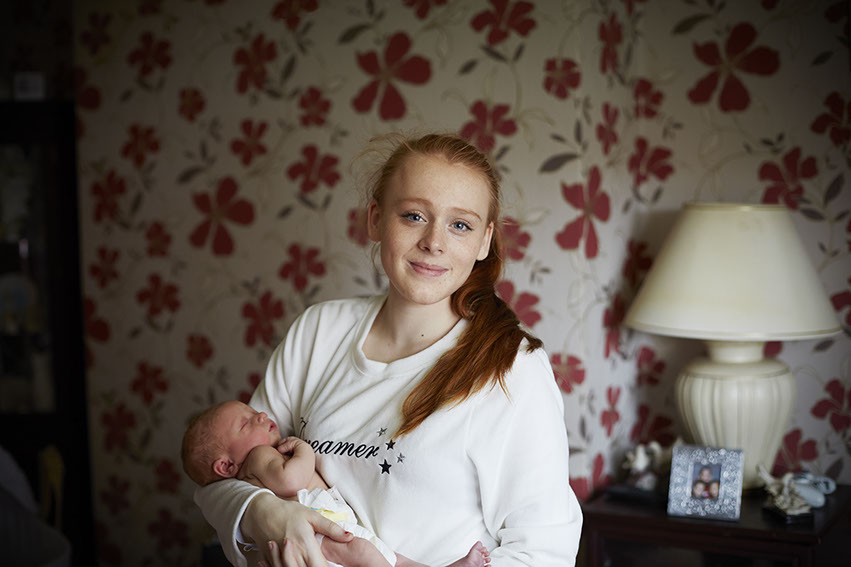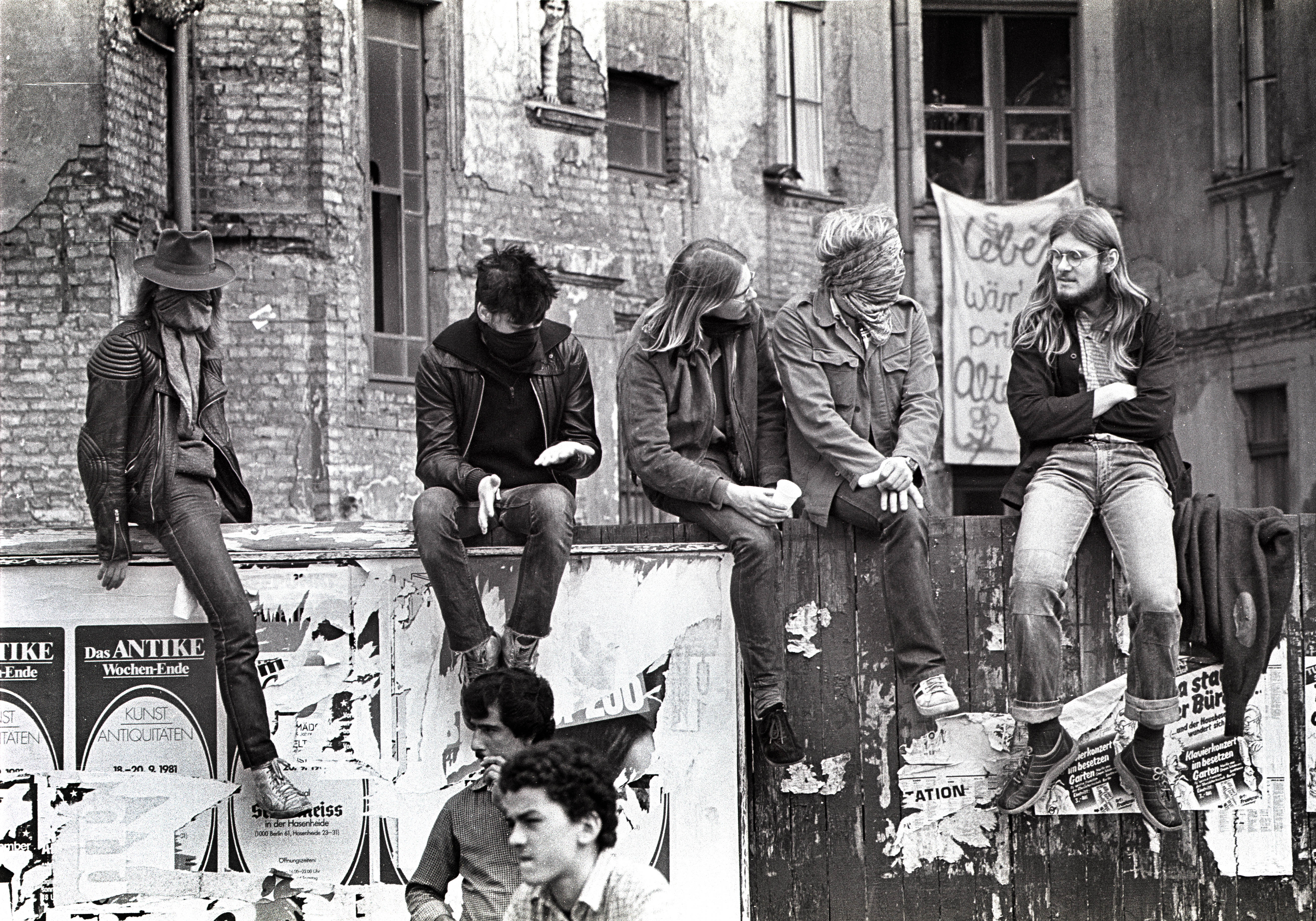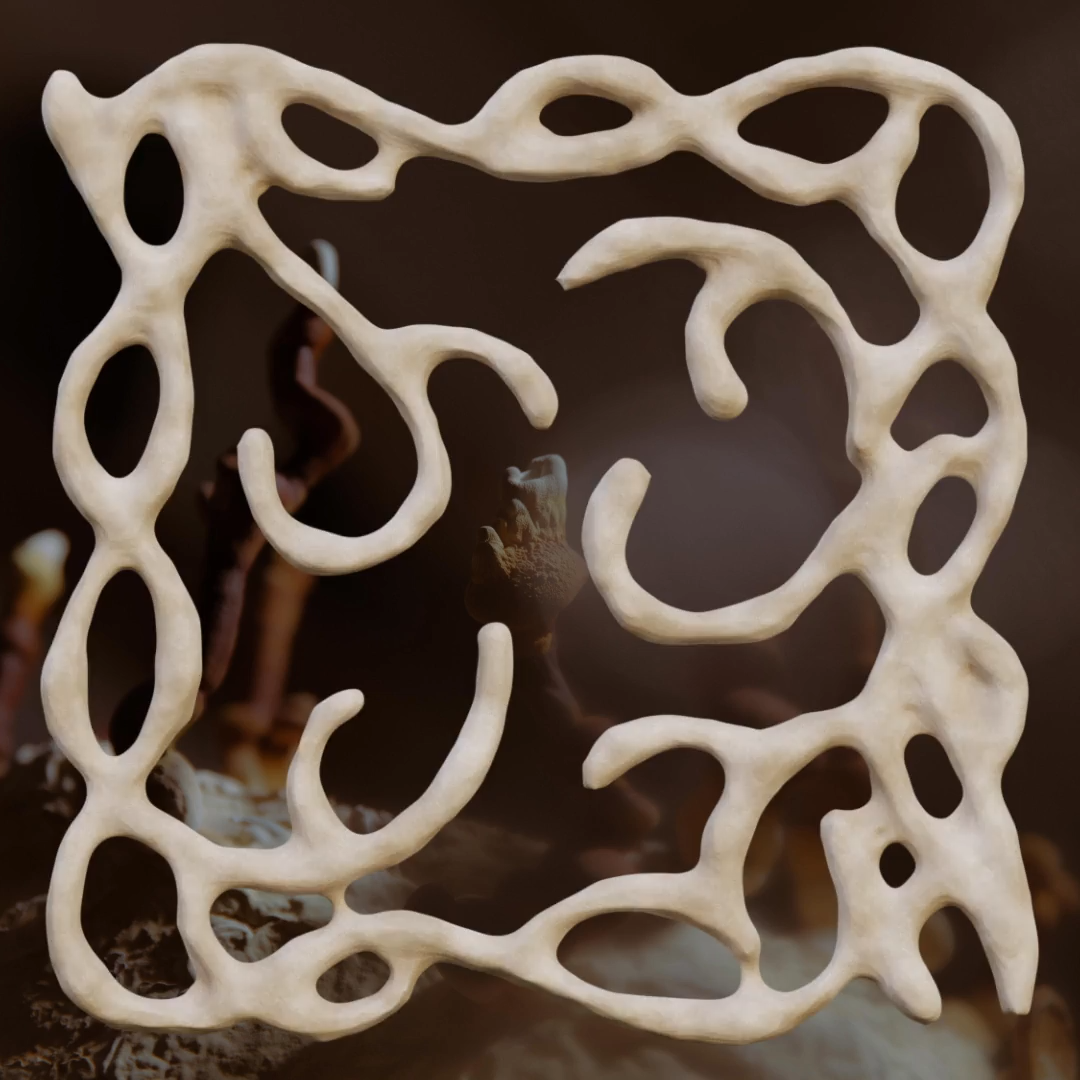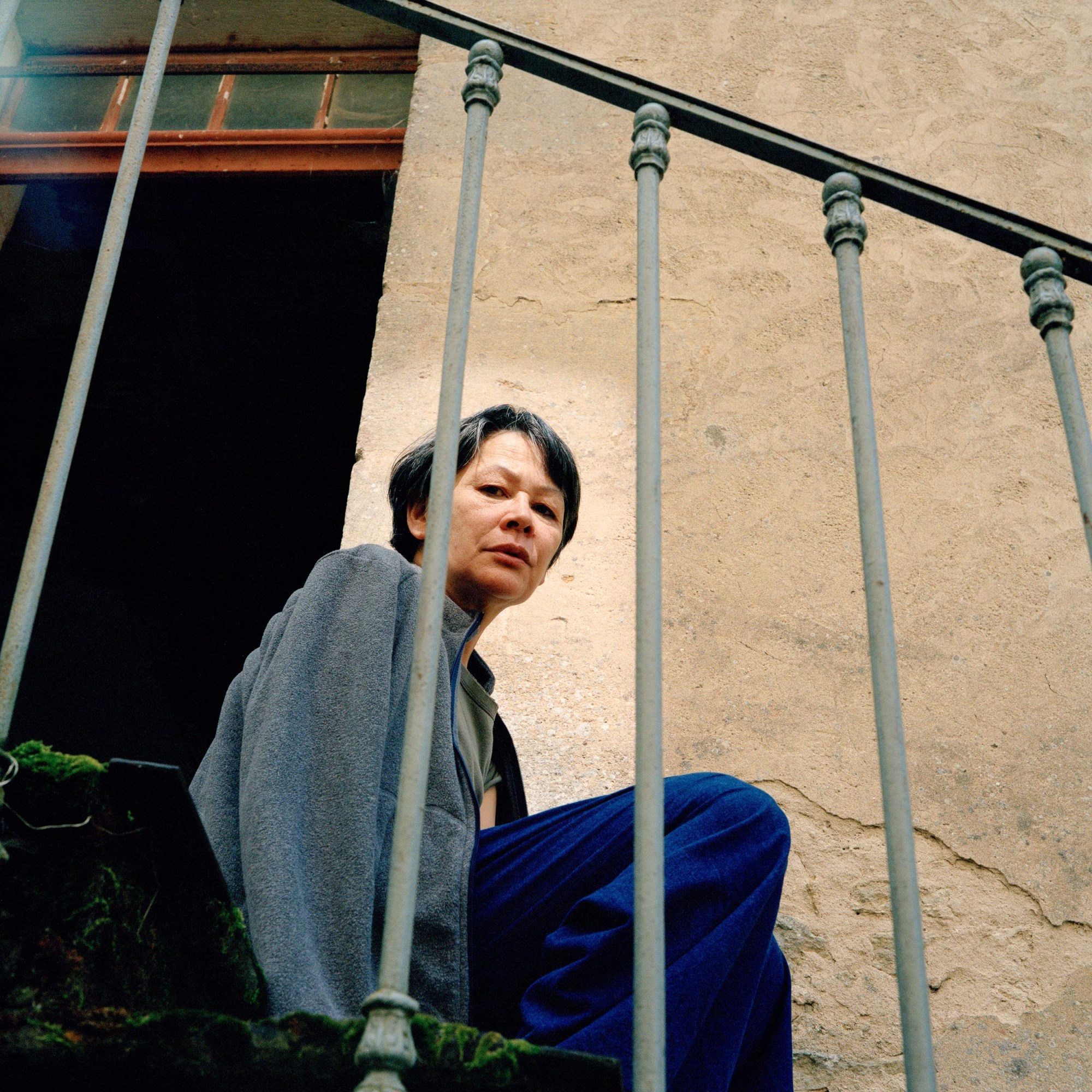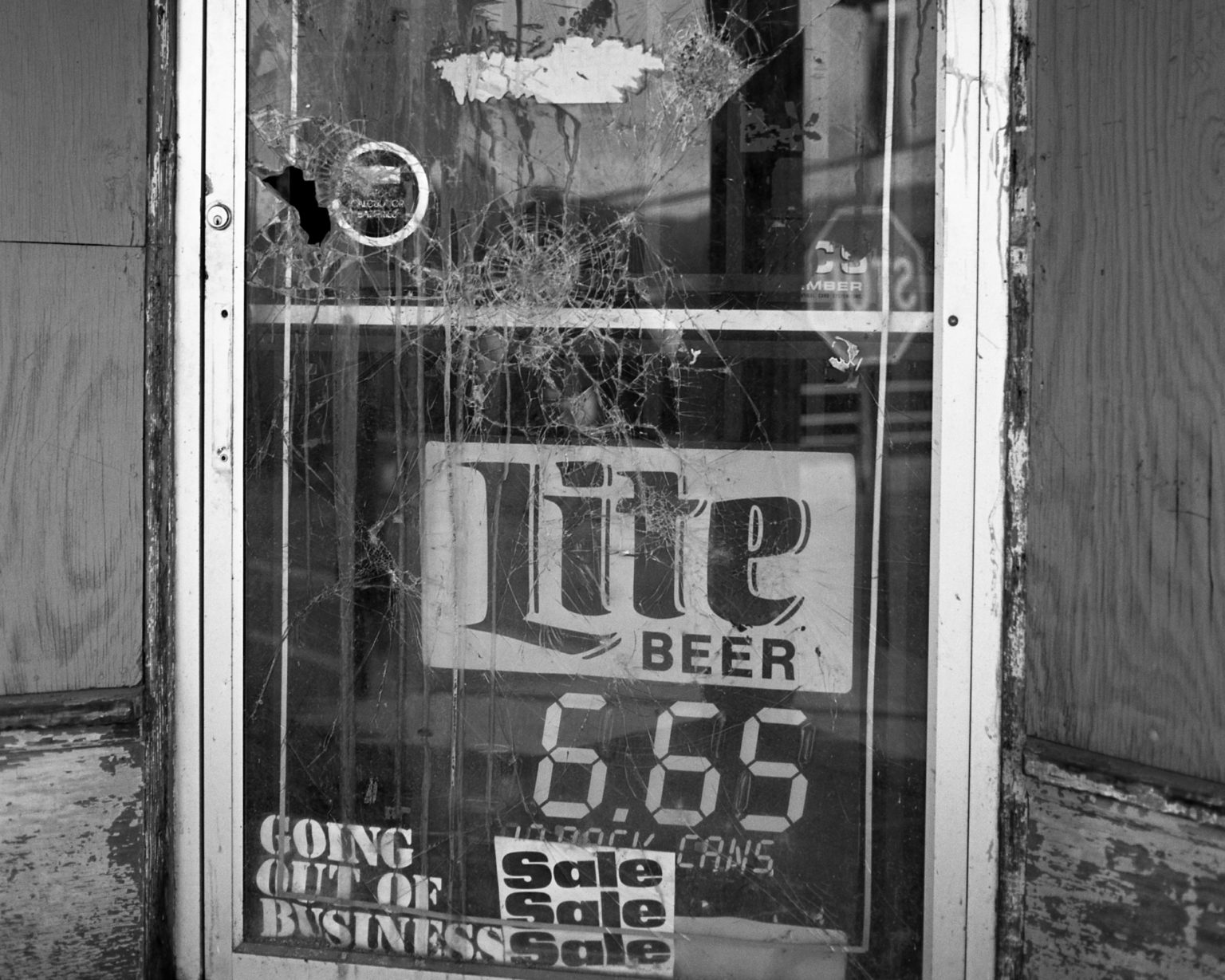Sometimes it is important to find creativity in the moments or situations of the mundane, to create images, stories and to become the observer; Daniel Weigel’s Generation Z is an examination of young men, identify and emotion, a conversation on age and the modern day man.
Working on an extended go/see for Hore Models, “When the models arrived I felt so distressed by such a meaningless and stupid task of just taking a picture that I made a new plan which was to try to show something deeper than that – to show something that is laying behind.” These intimate portraits act as a letter to a new generation of men, a representation of a new way of thinking about male identity, “These young men allow themselves to cry in public while they are also members of a boxing club, they go skateboarding and don’t define themselves as male identities. It all became more fluid and flexible. That is the paradox of my generation (born in the first half of eighties) does not deal with naturally. The whole team tried to capture this feeling in these few portraits.” I spoke with Weigel about this personal project to discuss the thoughts and feelings about these images.

Tell me about yourself as a photographer? What did this series mean to you?
I still feel like a learner. Be it on a technical level, but of course also stylistically and above all in terms of content. There is a big discrepancy between commercial work and the heart projects. To resolve or at least minimise this discrepancy is a great desire. I feel very connected to social, political, moral and emotional issues in general. This series emerged from a classic fashion photography task but it scratches on social issues that haunt me massively. I like that very much and this is a field in which I would like to work in. Maybe there are also labels and players from the fashion world, who also see interest in and relevance of these topics. In times of “awareness”, “#metoo”, “Brexit”, Trump, mass migration due to war, hunger, work, water … this does not seem to me to be improbable. Fashion has always been able to reproduce such fields – even if it sometimes counts among the causers. All the more important is a countermeasure.
Could you tell me a little more about feeling distressed by such meaningless and stupid task? I’d love to know more about this? Would you explain a little more about how this series started?
I studied photography. I love photography. I like to look at it, to discuss it. I like to think about it. However, I find it most fulfilling when I have the opportunity to create images that are not just images, close to the often discussed topic of photography, namely the image of an objective truth, but if these images are capable of doing so asking questions, confusing, evoking emotions, channeling emotions.
Unfortunately, with a “normal” go / see, this rarely happens. A model is photographed, with no thoughts, no background, an empty portrait of the person, which is mostly about the pure (often confused with natural) look of a person. This photography mostly serves only the sale of the model to potential clients.
In the past, I have often objected to photographing go/see’s because, in addition to the above arguments, the basic idea was a purely technical one for me. How do I turn on the camera, how do I set a quick and easy light, how do I press the shutter button, how do I focus, etc. Since I know one of the responsible persons at Hore Models, Rinat, it was easy to organise a bigger go/see. He was very fond of doing “more” than usual, and together we developed the idea.
Are all the males in this series from the same boxing club?
No. A few of the boys train in a boxing club. I think the whole squad represents a balanced way of Berlin’s Generation Z.
You discuss the paradox of the younger generation allowing themselves to be vulnerable in public in comparison to your own generation. Could you tell me a little more about how you feel about this and how producing this series affected you?
I think I do not even mean a higher willingness to show vulnerability. Rather a natural matter of course to break cultural structures. Call it fluidity. In all areas: On the one hand, there is the 19-year-old, who trains a few times a week in a Berlin boxing club in an extremely male-dominated environment, even fighting fights. On the other hand the vulnerable boy, who attaches great importance to style and appearance and who is not too bad to make himself vulnerable by crying in front of others. The opposites are only opposite, because we have constructed it as a society. This construct is one I grew up with. A heteronormative environment. My mother was a single parent for many years, father unknown, and it was almost a scandal when, for example, she was looking for a new home and landlords were confronted with her life. Above all, the visual media, especially the advertising of the 80s and 90s, have, in my eyes, further reinforced role models and glorified the strong, caring man, a rationalist who works. The opposite was always a woman, a mother of several children she cared for, and who was generally abducted by the husband, who had to secure them financially, but not emotionally. I remember well what a scandal David Beckham caused when, in early 2000s, he was in an extremely masculine sport that still lacks homosexuality, with made-up hair, plucked eyebrows and body and fashion cult in public occurred. This was extremely challenging for my generation, as most of us probably had socialised in a different way for many years. The boys and young men that I was allowed to take pictures grew up in a different matter of course with these topics.
I think socialisation through Internet, which is similarly fast-paced and fast-moving in the years following Beckham, played an immensely important role and continues to do so today. This gives Generation Z a long lead.
On the other hand, I find myself catching a jealous glimpse of this advantage from time to time, but on the other hand, I am also very happy that many issues no longer need to be discussed as intensively as I still had to do – albeit many, many more Years and fights needed.

What is your opinion on the identity of a male and some of the major issues of mental health today?
The combination of these two aspects is interesting.
There is not a male identity. This is perhaps the most important. I am father of a daughter for 16 months now and wish nothing more than a dissolution and blurring of male / female identities. In my opinion, these constructs are no longer up-to-date and block the development of so many people who can not or will not fit in with them. Furthermore, I think that the role models so far also determines the great inequality between men and women. I wish for my daughter, that she does not have to go through these fights, but can be what she wants.
In my opinion, these constructs are no longer up-to-date and block the development of so many people who can not or will not fit in with them.
What are you working on next?
As soon as my daughter is in kindergarten, I will tackle a major documentary project that has been in my drawer for two years (if it’s not already too late and possibly already told).

